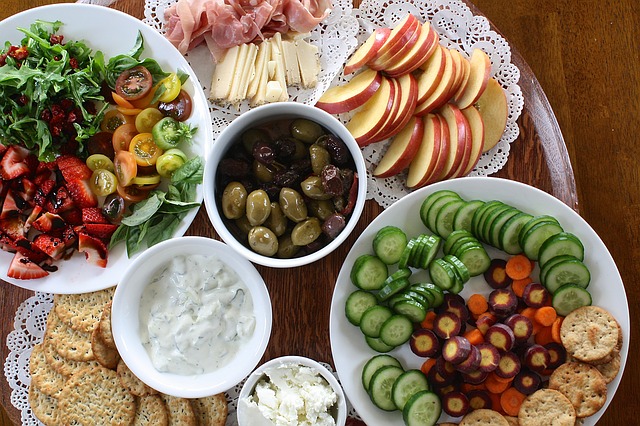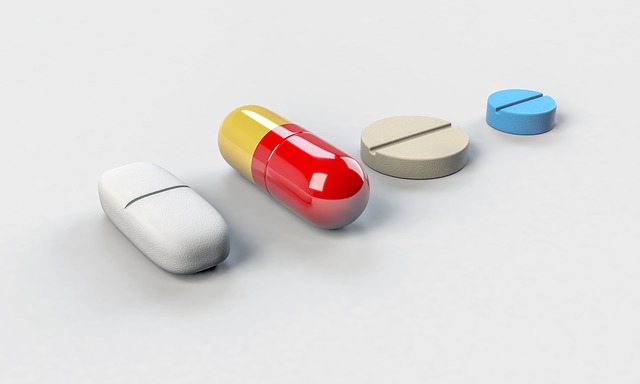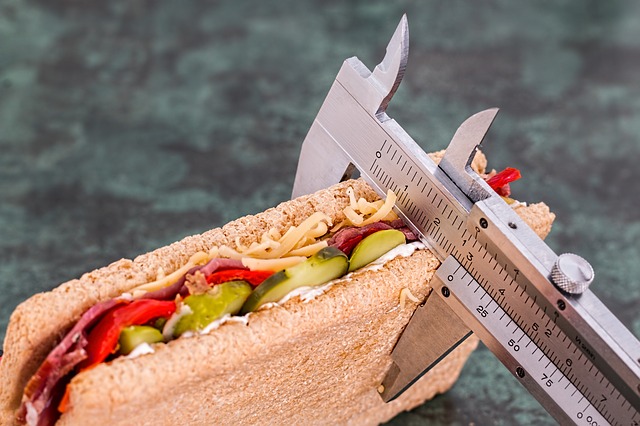
Table of Contents
Why Diets Don’t Work
Think about all of the different diets you know of; vegan, ketogenic, paleo, even lemon detox. The list goes on. While some people do find that these diets work for them, they are not right for everyone, and can actually be harmful to your health if you’re not absorbing the proper nutrients to keep your immune system healthy, or enough carbohydrates to give you energy throughout the day.
For example, while the ketogenic diet can produce positive health benefits in some people. It can also induce vomiting, constipation, and difficulty sleeping. Those who suffer from kidney disease should not attempt the ketogenic diet, as it could cause further complications. There is an element of danger when it comes to these “fad diets,” one that coupled with the overwhelming promises of weight loss, beauty, and power, can only lead to trouble, this is why diets don’t work.
Unfortunately, roughly 80% of American woman are dissatisfied with how they look, with 70% of women (at normal weight) wish they were thinner. The statistics are lower for men, but many believe this is due to societal shame. If a man were to discuss his body image issues with a friend, that friend may react poorly and succeed in causing more pain to the already insecure man.
When diets fail, the dieter is prone to bouts of depression and anxiety. Both of these conditions affect eating habits, either causing a loss of appetite completely or fueling a tidal wave of binge-eating. Neither practice is healthy. Dieting can be the catalyst for several mental health and self-image problems and is generally considered unhealthy for you in the long run.
A Pill Can Kill
The commercials for diet pills would make you think you see a miracle. Inflated promises of quick, easy, and immense weight loss. Guarantees that seem too good to be true, and all for only one low payment of $39.99! Well, if it looks too good to be true, it probably is.
Pills sold as dietary supplements are generally not regulated by the FDA. You don’t have a guarantee that the product you are about to ingest is safe. Those who take these risks – these non-FDA approved diet supplements – may suffer the following symptoms:

*Diarrhea
*Liver damage
*High blood pressure
*Rectal bleeding
*Heart Attack
*Stroke
You could be putting your life in danger by abusing unsafe supplements in an attempt to lose weight, and you don’t have to do that.
There are so many better, safer ways to lose weight and gain self-confidence, without resorting to the self-harm that comes with diets or weight-loss pills.
Those who take their negative self-image to the extreme, who are depressed and unhappy with themselves, are prone to developing an eating disorder. Like any disease (biological or mental), eating disorders can kill if left untreated. They come in various forms, but their intent is the same; to control how you feel about yourself via control of food.
Typical diet plans
The most common diet plan is restricting your access to food; this means eating smaller portions, counting your calories, or skipping meals altogether. If you find yourself always thinking about what you can and cannot eat, based on its calories, carbs or sugars, though you have no medical reason to do so, you may suffer from an eating disorder.
Eating disorders can develop when a person’s mind does not perceive themselves as they actually are. This “out of whack” perception of themselves makes the belief that they are fat, even if they are not, ugly when they are beautiful, profoundly and uniquely flawed, though their faults may be quite reasonable. It is a type of delusion that is difficult to break from.
Any eating disorder can cause a great deal of physical and emotional pain not only for the poor soul suffering from it, but for families, friends, and communities of that person. The incidence of eating disorders has been on the rise within the last two decades, as media pressure to look “perfect” continues to increase.
You should never deprive yourself of food to lose weight. Why? Because doing so is entirely unhealthy, unsustainable, and unnecessary!!
How Can I Eat What I Want And Be Fit?
The answer to this one is a three-parter. Firstly, remember the golden rule: Everything in moderation.
Secondly, drink more water and less soda. Soda is notoriously bad for you, especially with continued consumption. Lastly, and you may not like to hear this one, exercise daily.
Now before you roll your eyes and shake your head in dismay, hear us out. Though these may seem like simple, obvious rules, you may be surprised how actually sticking to them can change not only your waistline but your perception of yourself and the world around you.
After a week of eating whatever you’d like (in moderation), drinking more water than soda, and doing some general exercise, chances are you’ll start feeling more awake, more energetic, and happier.
Eating In Moderation
When you’re eating, and you begin to feel the first tiny murmurs of a full belly, know this: It is perfectly fine to stop for a few moments and take a break.
Sip some wine, enjoy a conversation, read an article, whatever you find relaxing. Taking a break while dining can actually help you eat less, especially if you’re someone who eats quickly.
It takes a little time for your stomach to catch up with your brain, and if it is possible for you to eat slowly, do it.
Not only will you enjoy each delicious bite of food with a reverence you may have never felt before, but your stomach will keep better pace with your brain, allowing you to eat to a more “appropriate full-level” rather than overeating.
Can I have my Cake and Eat it Too?
It means you eat your cake, eat your pizza, eat whatever your heart desires. But enjoy every bite, take your time, and moderate yourself. The best diet is a balanced diet; having some variety is essential. Listening to your body is a significant first step. What are you hungry for? If you crave salty food, it’s possible your body needs salt. If you’re craving sugary foods, your body needs energy.
Some rules to live by:
Did you know that soda dehydrates you? That’s why you feel like you need to drink more and more as the day wears on. Caffeine (a natural diuretic) doesn’t help matters. Soda ends up being addictive, corrosive, and dangerous over an extended period. Your body doesn’t need it.
The human body is comprised of between 55% and 75% water. We lose it regularly via sweat, saliva, and even breathing. If you’re not consuming enough water to replenish the daily loss, you’re bound to feel bad. When you’re dehydrated, you’re in a danger zone, where your mental capacities are lessened, and your body feels weak.
Avoiding dehydration is essential to maintaining proper health and staying fit.
At a relatively average temperature of 70-80 degrees Fahrenheit, it takes 9-10 days to die of dehydration. Some studies maintain that it only takes 2-4 days. That’s how vital water is to your survival and continued health. If you had no access to water for an entire week, you’d most likely die. Water protects your internal tissues, keeps the waste cycles going, protects your joints, and helps you breathe.
Try starting your morning off with a cold glass of water. Not only will it hydrate you, but you’ll also feel fresher, more alert and capable to take on the day. Making a habit out of drinking a glass of water before bed and after waking is a wonderful way to incorporate more water into your diet without sacrificing too many of your favorite sugary beverages.
Get Your Exercise On
Like a prom dress, not every exercise is one-size-fits-all. Take your health history into account before researching workout routines that draw your interest.
If you suffer from joint problems, arthritis, asthma, or any condition that limits certain aspects of your physical abilities, search for exercises that do not complicate your preexisting conditions or injuries. After all, if you hurt yourself when you exercise, you’re not helping yourself.
For those who find it difficult to get into exercising daily, we recommend trying yoga. Getting your body ready for physical exercise is known as “warming up,” and the long-held, extended stretches that yoga offers can loosen up tight muscles and areas, allowing you greater success and far less discomfort when moving on to aerobic or strength-training exercises.
Don’t have access to a gym?
You do! Your body is the cheapest, the most readily available gym you have. Body weight exercises are great for those who don’t have a lot of space to exercise in or access to a gym.
Using the weight of your body (hence the name) and gravity, you can build muscle and burn fat. Repetition is key when utilizing body weight routines for weight loss. If you work out one day a week, you’re unlikely to see dramatic changes in your muscle mass and weight.
If you find yoga boring, and body weight exercises dull, our recommendation is to discover an activity that peeks your interest, and run with it! Whether it’s bowling, bicycling, kayaking, snowboarding, dancing, or playing football, the means of exercise is not as necessary as actually getting up and getting your blood pumping.
You don’t have to be the next Arnold Schwarzenegger. Be yourself. As long as get up and exercise for at least twenty minutes each day, you’re doing your part. Of course, the more vigorous the activity, the more energy your body will consume, but the purpose of exercise should not be to lose weight. It should be to have fun and increase your mental, emotional, and physical well-being.
There are endless lists of health apps, exercise challenges and work-out routines out there for you to try. As long as you choose something that doesn’t cause you great physical pain or discomfort and also excites you, you’ll be fine. Don’t be too hard on yourself. Building habits take time. There’s no shame in starting small and building up as your strength and confidence increase.
Eat Everything Stay Fit
By following these three simple rules, you too can eat anything and keep your body in tip-top shape. All it takes is a little moderation (which results in maximum enjoyment), excellent hydration, and daily exercise. It’s that simple!
Remember that eating disorders and get-slim-quick schemes can cause far more hurt than help. If your doctor prescribes a weight-loss supplement to you, by all means, take your practitioner’s advice. But be wary of diet pills that promise to help you lose a dramatic amount of weight, or do not display a list of ingredients. They can be deadly.
Do not allow societal pressure to become your rule-of-thumb for physical satisfaction. As long as you are healthy and fit, it doesn’t matter if you are not a size zero. Everybody’s body is unique. Eating disorders are born from poor self-image when people compare themselves to others and feel that they don’t match up. Once trapped inside such a mindset, it can be incredibly difficult to escape.

